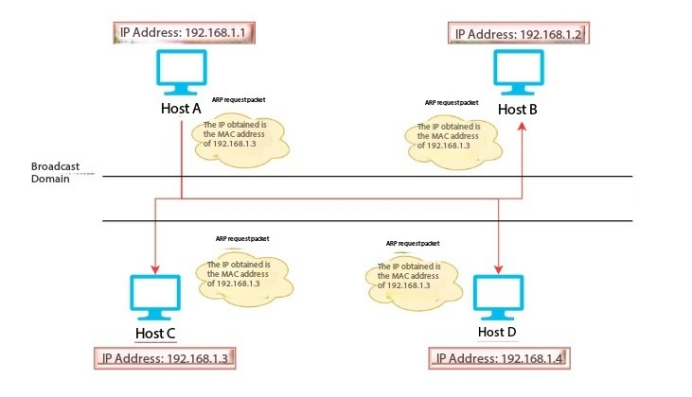Read Static ARP and Dynamic ARP
Good evening, my friends!
Today we're going to talk about static ARP versus dynamic。ARP ,Understand how they work and when to use them.
In local area network communication, although the IP address is used to identify the target host, but the real data transmission needs to know the other party's MAC address. The mapping of IP to MAC is done through the ARP protocol. The records in the ARP table are divided into two types: static ARP and dynamic ARP.
If you want to get more information, scan the QR code below to contact customer service.

01 What is ARP?

ARP (Address Resolution Protocol,Address Resolution Protocol) is used to resolve the corresponding MAC address according to the target IP address. It is one of the key protocols to realize communication in local area network.
When a host wants to communicate with another IP, it first looks at the local ARP table to see if the MAC address for that IP already exists. If not, it sends an ARP request to broadcast, waits for the target device to respond to the MAC address, and then establishes communication.
02 Dynamic ARP
Dynamic ARP is the most common type of ARP, which is automatically learned by the system based on actual communication.
Add image comment : Dynamic ARP table entries are time-limited and are automatically deleted when they expire .
Features:
· Automatic learning generation via ARP requests;
· Has a lifetime , usually a few minutes ( e.g. 120 seconds ) ;
· The table items are empty when the power is out or when they are restarted;
· Higher risk of ARP attacks.
Use case : It is suitable for host communication in general network environment without manual intervention .
03 Static ARP
Static ARP is an IP-MAC correspondence that is manually configured by the administrator, and table entries are not automatically deleted or modified by the system.
Add image caption : Static ARP table entries protect against common ARP spoofing attacks .
Features:
· Manually set , permanently ( until manually removed or rebooted ) ;
· Does not disappear when rebooted or timed out ( depending on the system ) ;
· It can effectively prevent ARP spoofing and interman attacks;
· The configuration is cumbersome and not easy to maintain.
Usage Scenarios : Suitable for key equipment with high security requirements , such as :
· Gateways, firewall equipment;
· Core servers;
· An important business terminal.
Example of static ARP configuration
Configuring static ARP in Windows

Explanation : Bind the IP address 192.168.1.100 permanently to the MAC address 00-11-22-33-44-55 . Reboot after configuration may be invalid .
Configuring static ARP in Linux

Or an older version of the system is used:

Explanation : Statically bind the IP and MAC address to the eth0 network card . The configuration is usually not retained after reboot and can be written to a startup script to achieve persistence .
Huawei switch / router configuration static ARP

Explanation : Bind the IP address 192.168.1.100 to the MAC address 00e0-fc12-3456 , and specify that the binding occurs on VLAN 10 .
04 Static VS Dynamic ARP Comparison Table
Characteristic
| Static ARP
| Dynamic ARP
|
How it is generated
| Manual configuration
| Automated Learning
|
Is it permanent?
| Yes (configurable to be permanent)
| No (time limit)
|
Safety
| High (ARP spoofproof)
| Low (vulnerable to ARP attacks)
|
Maintenance Costs
| high
| low
|
Typical uses
| Critical equipment, gateways, servers, etc.
| General host communication
|
06 FAQs
1. Can static ARP completely defend against ARP attacks?
Not completely, but can effectively reduce the risk of spoofing caused by forged MAC addresses. It is best to use with DHCP binding and switch security functions.
2. Can the dynamic ARP table be emptied manually?
Yes, use it in Windows arp -dCommand, for Linux ip neigh flush。
3. Does static ARP need to be configured on a per-unit basis?
Yes , unless centralized management is used ( such as a script or NAC system ) , manual addition is required on each device .
We shared this today. Goodbye next time!
For more ARP resources, follow the Facebook account & youtu be account: Thinkmo Dumps


